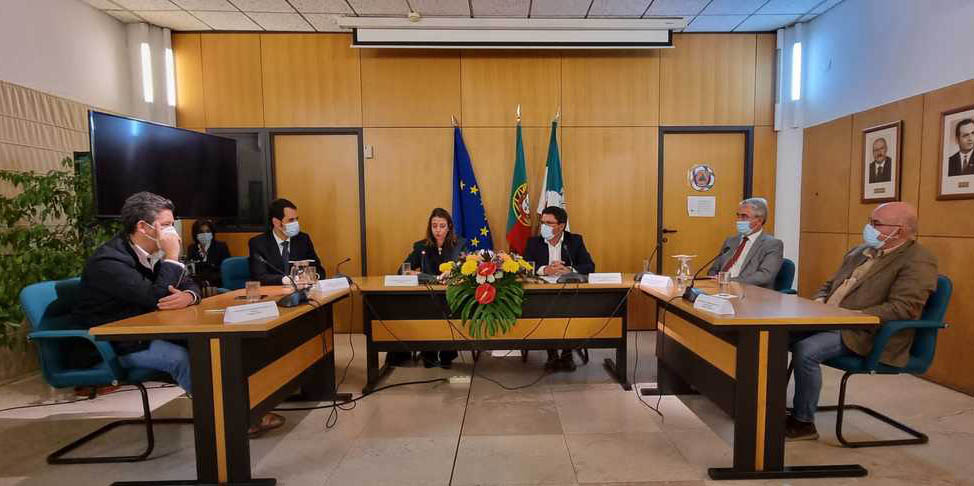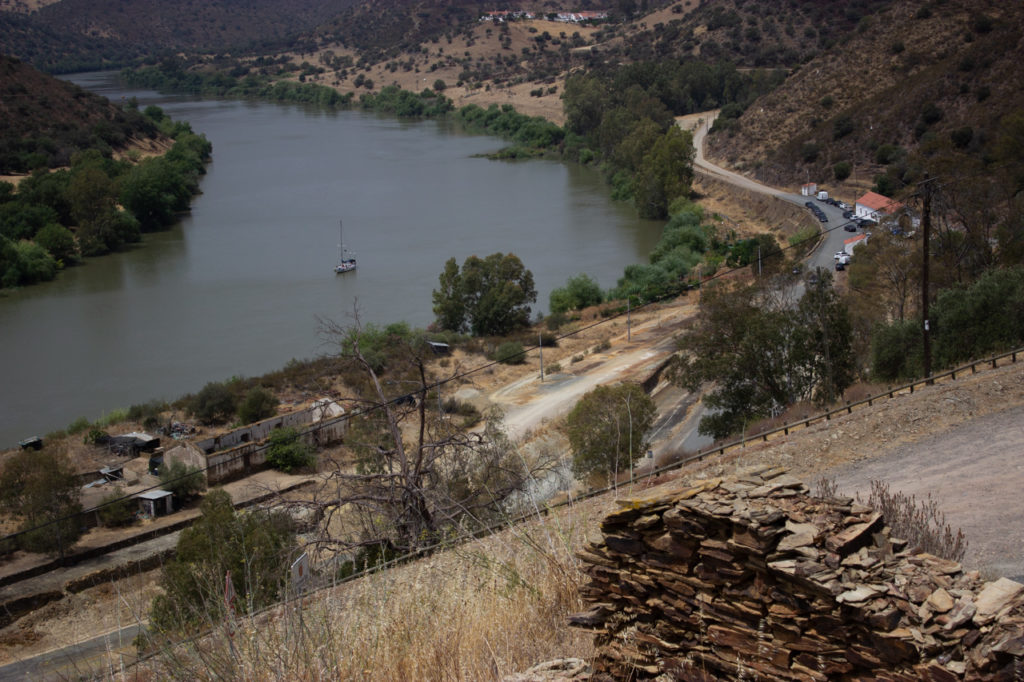«Between 1 to 2 million euros will be essential to guarantee the necessary infrastructure to enhance the use of the Guadiana», within the scope of the broader project for the navigability of this river, from its mouth, in Vila Real de Santo António, and Mértola.
The values were pointed out by Sérgio Faias, chairman of the Board of Directors of Docapesca, who, on Tuesday, the 9th, signed a protocol with four Municipal Councils in Alcoutim – the hostess and also Castro Marim and Vila Real de Santo António , in the Algarve, as well as Mértola, in the Alentejo -, the first step towards launching a study that will identify river infrastructure with potential for sustainable development of the waterway of the Guadiana river.
Helena Coelho, Secretary of State for Fisheries, who presided over the signing of the protocol, told the Sul Informação that the intention is to "study the state of the infrastructure of the Guadiana waterway, understand what the opportunities are for the region's economy, then make an investment plan and see what the possible sources of financing are".

Also speaking to our newspaper, Sérgio Faias explained that "since 2014, when Docapesca took over the functions of IPTM, we have been working hard on the rehabilitation and replacement of the existing quays on the Guadiana river, in order to have better safety conditions."
However, added the president of Docapesca, «in view of this new reality that the river can once again be navigable, from Vila Real to Mértola, what is planned is to try to understand, with the local populations, what is the potential for development with as a basis for the navigability of the Guadiana».
Osvaldo Gonçalves, president of the Alcoutim Chamber, told the Sul Informação that this study has "strategic importance" and "is the result of the claims we have been making", arguing that it is necessary to "create conditions to take advantage of the benefit that was given to the river, with navigability, the hydrographic map and signaling ».
What cannot continue, in the opinion of the Algarvian mayor, is that «the vessels do not have, along the Portuguese bank of the river, the capacity of anchoring, and end up going to the Spanish side». This makes the Spaniards, who have already carried out works, the only ones to benefit from navigability.
For now, the river is only navigable between the mouth and the old port of Pomarão, in Alentejo, but it is intended that the investment will continue to Mértola, in a 3rd phase of the project.
Mário Tomé, mayor of Mértola, speaking to the Sul Informação, revealed that he took advantage of the ceremony in the neighboring municipality of Alcoutim to sensitize the Secretary of State for Fisheries and, through her, the Government, "for the need to complete navigability" to that riverside village in Alentejo.
"There is already a commitment, within the scope of POCTEP [Operational Program for Cross-border Cooperation Spain – Portugal], involving the CCDRs of Alentejo and Algarve, to complete the navigability to Mértola", added the mayor.
In fact, last June, after the conclusion of the navigability work between Vila Real de Santo António and Pomarão, the Directorate General for Natural Resources, Security and Maritime Services (DGRM) announced that it would proceed with the last phase of the navigability project of the Pomarão-Mértola section.

In July, the Regional Coordination and Development Commission (CCDR) of the Algarve stressed that its «purpose create conditions for, in the next Community Support Framework, take navigability to Mértola and improve nautical support along the riverbanks, safeguarding biodiversity, ensuring the presence of the natural values that characterize this landscape and the sustainable use of the River Guadiana» .
But President Mário Tomé is afraid that the current political situation, with a government forward and Legislative Elections scheduled for January, will delay the process again. "There are about 3 million euros left" to complete the navigability of the Guadiana, recalls the mayor from Merto, noting that, "in the panorama of community funds, this is a small percentage on a macro scale."
"My appeal is that, once and for all, the navigability of the river is concluded, as part of a strategy for the development of this territory," he added.
For his part, the president of the Algarve Chamber of Alcoutim stresses that «the longer the navigable route on the river, the more attractive it becomes and the more boats it will bring, both here to our municipality and to Mértola».
For now, what will advance is the study that will identify river infrastructure with the potential to economically dynamise the navigable waterway of the Guadiana River.
Mário Tomé considers that it is a question of "complementing" the work of navigability, "in the logic of studying the needs of infrastructure on land", but also "the lines of financing to implement them in the future".
Osvaldo Gonçalves adds that, in Alcoutim, there are already «a series of ideas for what needs to be done», the study will only «formalize» such ideas. Among the works he considers necessary in the river infrastructure, the Algarve mayor speaks of the "expansion and remodeling of the berths", as well as the creation "of another type of infrastructure for larger boats, sailboats, which are already starting to go up the river ». "We have the locations very clearly identified", he guarantees.
However, emphasizes the mayor of Alcoutenejo, "always works with respect for environmental sustainability, which should be the common hat for all these interventions."



















Comments